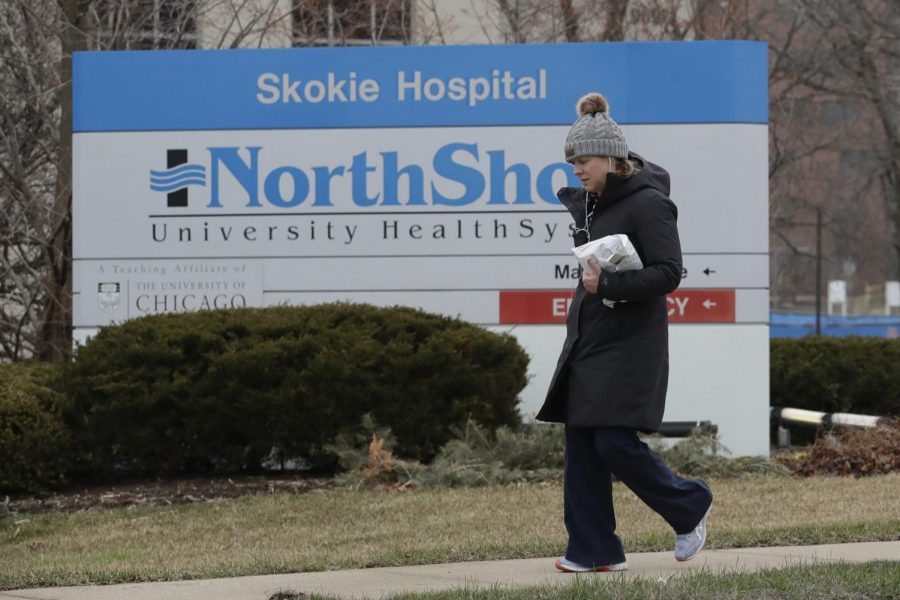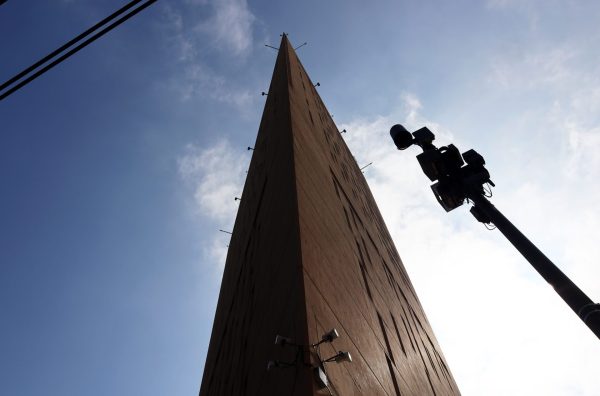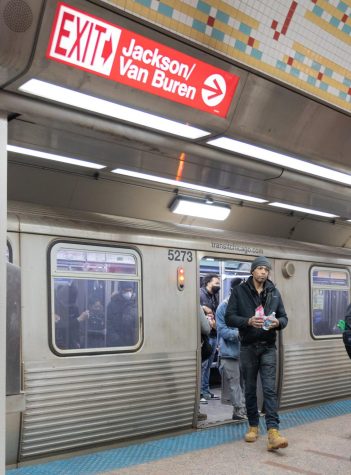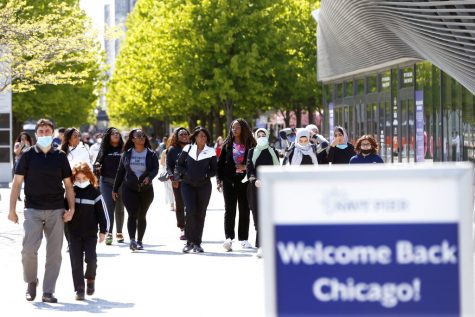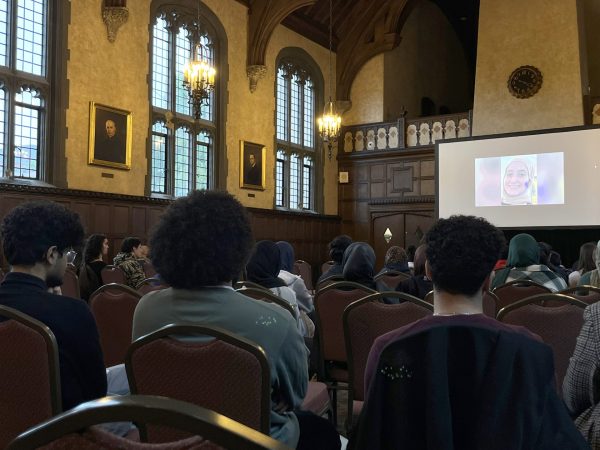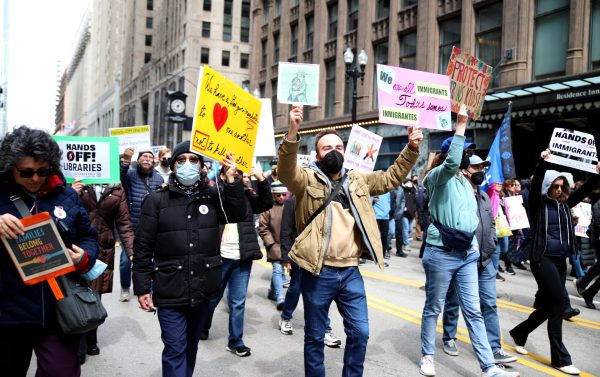Illinois infant with COVID-19 dies, cause of death unknown
Credit: AP Photo/Nam Y. Huh/The DePaulia
A woman walks on the sidewalk in front of NorthShore Skokie Hospital sign in Skokie, Ill., Friday, March 27, 2020. Gov. J.B. Pritzker issued a stay-at-home order for the entire state, which went into effect on March 21, 2020 and lasts through at least April 7.
An Illinois infant with COVID-19 has died, Gov. J.B. Pritzker said Saturday. The cause of death is unknown and an investigation is underway.
A state employee also was among 13 new deaths reported Saturday, as Illinois Department of Public Health Director Dr. Ngozi Ezike urged people to do all they can to prevent the spread of the virus.
“If you haven’t been paying attention, maybe this is your wake-up call,” Ezike said.
The risk of death and severe illness from COVID-19 is greater for older adults and people with other health problems. In most cases, the virus causes mild or moderate symptoms, which can include fever and cough but also milder cases of pneumonia, sometimes requiring hospitalization.
Children have made up a small fraction of coronavirus cases worldwide. A letter published in the New England Journal of Medicine by Chinese researchers earlier this month reported the death of a 10-month-old with COVID-19. The infant had a bowel blockage and organ failure, and died four weeks after being hospitalized.
Separate research published in the journal Pediatrics traced 2,100 infected children in China and noted one death, a 14-year old. The study found less than 6% of children were seriously ill.
Illinois reported 465 new cases on Saturday and 13 deaths, including a state employee who worked for the Department of Human Services. Six of the deaths, including the infant, were in Cook County, which includes Chicago. The others were in counties surrounding Chicago: McHenry, Kane, Lake and Will. Other than the child, a McHenry County man in his 50s was the youngest person to die.
The new numbers bring Illinois’ total cases to 3,491, including 47 deaths, in 43 of Illinois’ 102 counties. The state said 25,429 people had been tested as of Saturday afternoon.
Pritzker urged people to follow his stay-at-home order and practice social distancing when outside of their home, and said new shopping procedures will be starting, such as announcements in stores reminding shoppers to keep six feet apart and a temporary ban on reusable bags.
He also McCormick Place Convention Center in Chicago will serve as Illinois’ first “field hospital.” On Friday, the Army Corps of Engineers’ commander, Lt. Gen. Todd Semonite, told reporters the corps is setting up beds to accommodate about 3,000 patients at the convention center, and will be ready by April 24.
“We’re not waiting of the worst,” Pritzker said. “We’re preparing ourselves for the worst.”
SCHOOLS
The Illinois State Board of Education late Friday set new guidelines for schools as it seems more likely remote learning and other changes will continue further into the academic year. The board said districts must implement remote learning plans for all schools starting Tuesday. Districts may use online or non-digital learning, such as giving out homework packets, but must find ways to engage students.
Pritzker has suspended state-mandated standardized testing, including the SAT, which is widely used for college admissions. The state board said it’s working on options to allow high school juniors to take the SAT in the fall. It also said districts should adopt a grading system of “pass” or “incomplete,” and students should be allowed to make up or do assignments over.
Pritzker originally ordered schools closed through March but has extended the order through at least April 7 as the state tried to get a handle on the pandemic by issuing a stay-at-home order through the same day. Chicago Public Schools suspended in-person classes at least through April 20.
Both Pritzker and Chicago Mayor Lori Lightfoot have said they do not know when schools may be able to reopen, but Lightfoot predicted Friday that Pritzker’s stay-at-home order will last “deep into April.”
SMART 911
Lightfoot asked Chicago residents on Saturday to sign up for a “Smart 911” system that allows people to let police, fire and emergency medical crews know that they are under quarantine or experiencing symptoms of COVID-19. Lightfoot said the free service will help keep crews responding to emergencies safe and healthy.
People also can include other information they may want first responders to have in case of an emergency, such as health conditions or whether they are are hard of hearing or deaf. Those who are quarantined can use the Smart911 app on a cellphone to receive messages checking on their health status.


